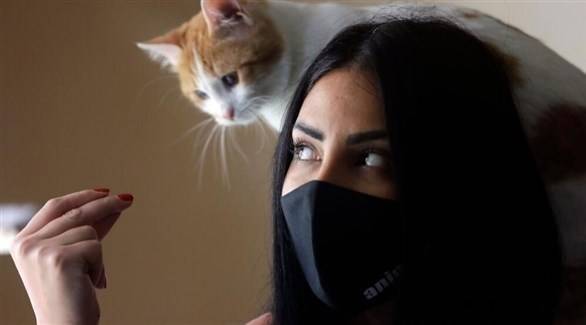Ibrahim Al-Diqqa took care of his Belgian Shepherd dog, Lexi, since she was a small puppy, but the economic crisis in Lebanon left him unemployed, forcing him to sell her to pay off a bank loan. The 26-year-old Lebanese says, "It reached the point where I could no longer afford to buy her food, and the bank was pressuring me, so I was facing a dead end." He adds, "I didn't sell a car or a phone; I sold a soul. I sold a part of myself."
Animal rights activists note that covering the costs of pet care has become a dilemma faced by an increasing number of Lebanese who keep pets at home after a decline in their purchasing power. Tens of thousands of Lebanese have lost their jobs or seen their income dwindle due to the worst economic crisis Lebanon has experienced in decades.
Under this reality, many families are struggling to survive, which has led a growing number of pet owners to seek help to secure food for their animals, while some ask others to house them or sell them, or even abandon them in the worst cases.
Ibrahim lost his job last year after the clothing store he worked for decided to close its doors in Lebanon, which limited his ability to support his mother and brother following his father's death due to illness. Though Ibrahim took care of Lexi for nearly a year, training her to sit, stand, play, and shake paws, he had no choice but to sell her when the bank began contacting him about repaying his debt.
A few days later, he drove to check on her, thinking she would believe he came to take her home. He says she "immediately ran" to his car and jumped in as if to say, "I want to go with you." He adds, "The way she looked at me shattered my heart."
As more than half of Lebanon's population experiences poverty, many rely on support from NGOs to meet their life needs and even to feed their pets. Amal Ramadan, who used to donate to the "Perpetual Animal Watch" charity, now receives free bags of food for her two dogs, Nelly and Fluffy, of the Pit Bull and Bichon breeds. Due to the devaluation of the Lebanese currency, her monthly salary from her job in car rentals has effectively dropped from a thousand dollars to just 120.
Ramadan, a widow and mother of two, notes that she has taken on extra work to cover her expenses, adding, "I don't have enough income to feed my pets." She insists she would rather go hungry than abandon Nelly and Fluffy.
However, the fate of some other animals has not been the same, as the prices of meat, imported dog food, and veterinary care have surged, according to activists. Many confirmed to the French news agency AFP that the price of imported pet food has increased fivefold compared to the period before the crisis, with a bag of food from a global brand sometimes exceeding Lebanon's minimum wage of 675,000 Lebanese pounds (450 dollars at the official exchange rate).
In a dog shelter in southern Lebanon, volunteer Ghada Khateeb points to a dog lying on its side, breathing heavily, found in a landfill in the area. Khateeb explains that the abandonment of pets is on the rise. The hairdresser and volunteer at "Woof and Wags" shelter states that no one can afford to feed their dogs any longer due to the high cost of living.
The situation of pets in Lebanon reflects that of their owners amid the collapse of their country's economy. Thuraya Maawad, who works on rescuing dogs in the capital Beirut, recounts that two or three people ask her each week to find shelter for their animals. Since 2019, the number of youth leaving Lebanon to work in other countries has increased, especially after the massive explosion at the Beirut port last summer that killed over two hundred people and devastated large areas of the capital.
Several activists are making efforts to enable dozens of pets to migrate as well.




